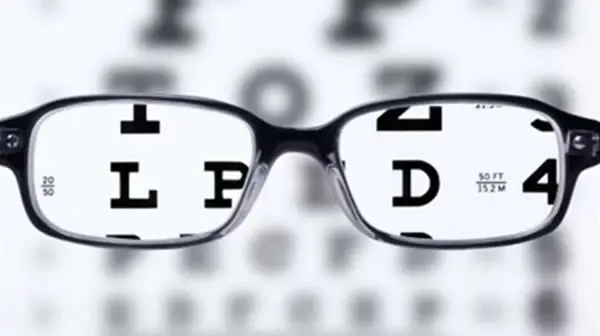Understanding Vision Impairment and Its Effects on Daily Life

Vision impairment, a condition that can range from low vision to complete blindness, affects individuals of all ages and can have a significant impact on their daily lives. In this comprehensive guide, we will explore the various causes and symptoms of vision impairment, as well as the available treatments and preventive measures. Whether you or someone you know is dealing with vision issues, this article aims to provide valuable insights and practical advice.
What is Vision Impairment?
Vision impairment refers to a range of conditions that affect an individual's ability to see clearly or at all. It can manifest as low vision, where the person has limited visual capabilities, or complete blindness, where there is a complete absence of vision. People with low vision may experience blurred vision, difficulty distinguishing colors, or loss of side vision. On the other hand, those who are blind have no visual perception whatsoever.
Vision impairment can occur at any age and may be caused by various factors, including genetic conditions, diseases, injuries, or medical conditions. In some cases, vision problems may be temporary, while others may worsen over time, leading to progressive vision loss or blindness.
Common Causes of Vision Impairment
Understanding the underlying causes of vision impairment is crucial for proper diagnosis and treatment. Some of the most common causes include:
- Neurological conditions: Certain neurological conditions can affect the parts of the brain responsible for sight, leading to cortical vision impairment.
- Genetic conditions: Conditions such as albinism and retinitis pigmentosa are genetic in nature and can result in vision impairment.
- Illnesses and conditions at birth: Premature babies or babies with specific birth complications may develop vision problems. Conditions like pediatric glaucoma, cataracts, and retinoblastoma can also contribute to vision impairment.
- Infections during pregnancy: Infections with viruses like rubella, cytomegalovirus, sexually transmitted infections, and toxoplasmosis can result in vision impairment in babies.
- Structural problems with the eyes: Structural abnormalities, such as microphthalmia (abnormally small eyes) or anophthalmia (absence of one or both eyes), can limit vision.
- Eye damage or injury: Injuries to the eye, the pathways connecting the eye to the brain, or the visual center of the brain can cause vision impairment.
Recognizing the Signs and Symptoms of Vision Impairment
Identifying the signs and symptoms of vision impairment is crucial for early detection and intervention. While some individuals may have visible abnormalities in their eyes, others may show behavioral or visual cues that indicate a problem with their vision.
Signs of Vision Impairment in Infants
In infants, visual impairment may not always be evident by looking at their eyes. Instead, parents and caregivers should be observant of certain behaviors and responses that may indicate a vision problem, such as:
- Constant eye rubbing
- Extreme sensitivity to light
- Poor focusing ability
- Chronic eye redness or tearing
- White or cloudy appearance of the pupil
- Abnormal eye alignment or movement after 6 months of age
Signs of Vision Impairment in Older Children and Adults
Older children and adults with vision impairment may exhibit different signs and symptoms. These can include:
- Holding objects close to their face
- Complaints of tiredness or frequent eye rubbing
- Tilting or turning their head to see objects up close
- Fatigue after engaging in close-up activities
- Better vision during the day compared to night
- Crossed or turned eyes, also known as squinting
- Clumsiness or frequent accidents
Seeking Diagnosis and Treatment for Vision Impairment
If you suspect vision impairment in yourself or a loved one, it is essential to seek a professional diagnosis from a general practitioner (GP), pediatrician, or optometrist. They can refer you to a specialized eye specialist, such as a pediatric ophthalmologist, who will conduct a thorough examination and perform tests to determine the cause and extent of the vision impairment.
Early diagnosis is crucial, as it allows for timely intervention and treatment. Depending on the underlying cause of the vision impairment, treatment options may include prescription eyeglasses or contact lenses to correct refractive errors, surgery to address structural abnormalities or conditions like cataracts, medications to manage certain eye diseases or conditions, or assistive devices and adaptive techniques for individuals with severe vision impairment or blindness.
It is essential to follow the recommended treatment plan and attend regular follow-up appointments to monitor the progression of the condition and make any necessary adjustments to the management approach.
Preventing Vision Impairment: Regular Eye Exams and Healthy Practices
Prevention plays a crucial role in maintaining good eye health and reducing the risk of vision impairment. Here are some preventive measures to consider:
- Regular eye exams: Schedule regular eye exams with an optometrist or ophthalmologist to detect any potential issues early on and receive appropriate treatment.
- Protective eyewear: Use protective eyewear, such as safety glasses or goggles, when engaging in activities that pose a risk of eye injury, such as sports or working with hazardous substances.
- Maintain a healthy lifestyle: Adopt a well-balanced diet rich in nutrients beneficial for eye health, such as vitamin A, C, and E. Manage chronic health conditions like diabetes and high blood pressure, as they can contribute to vision problems.
- Practice good eye hygiene: Avoid prolonged exposure to digital screens, take regular breaks, and maintain proper distance and lighting when using electronic devices. Additionally, practice proper contact lens hygiene to reduce the risk of eye infections.
- Protect your eyes from UV radiation: Wear sunglasses with UV protection when exposed to sunlight to reduce the risk of cataracts and other sun-related eye conditions.
By incorporating these preventive measures into your lifestyle, you can significantly reduce the likelihood of developing vision impairment and maintain optimal eye health.
Vision impairment, whether it manifests as low vision or complete blindness, can have a profound impact on an individual's life. Recognizing the signs and symptoms, seeking timely diagnosis and treatment, and accessing appropriate support services are essential for managing vision impairment effectively. By following preventive measures and prioritizing regular eye exams, you can take proactive steps to protect your vision and maintain good eye health. Remember, while vision impairment may present challenges, there are numerous resources and coping strategies available to help individuals lead fulfilling and independent lives.
TESTIMONIAL

Everything was explained. Everyone was helpful, cheerful, and competent. Dr. Paré was, as always, competent, helpful, and patient.

“My visit was awesome. The tech was fantastic and of course we love Dr. Hewitt.”

Dr. Park has my full faith and confidence for me to recommend her to whomever may read this. I am pleased she has joined the practice. Her professional and exceptional caring will be evident in seconds to her patients meeting her.
OFFICE HOURS
| Week Days | 8:00 - 4:00 |
| Saturday | Closed |
| Sunday | Closed |

